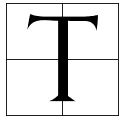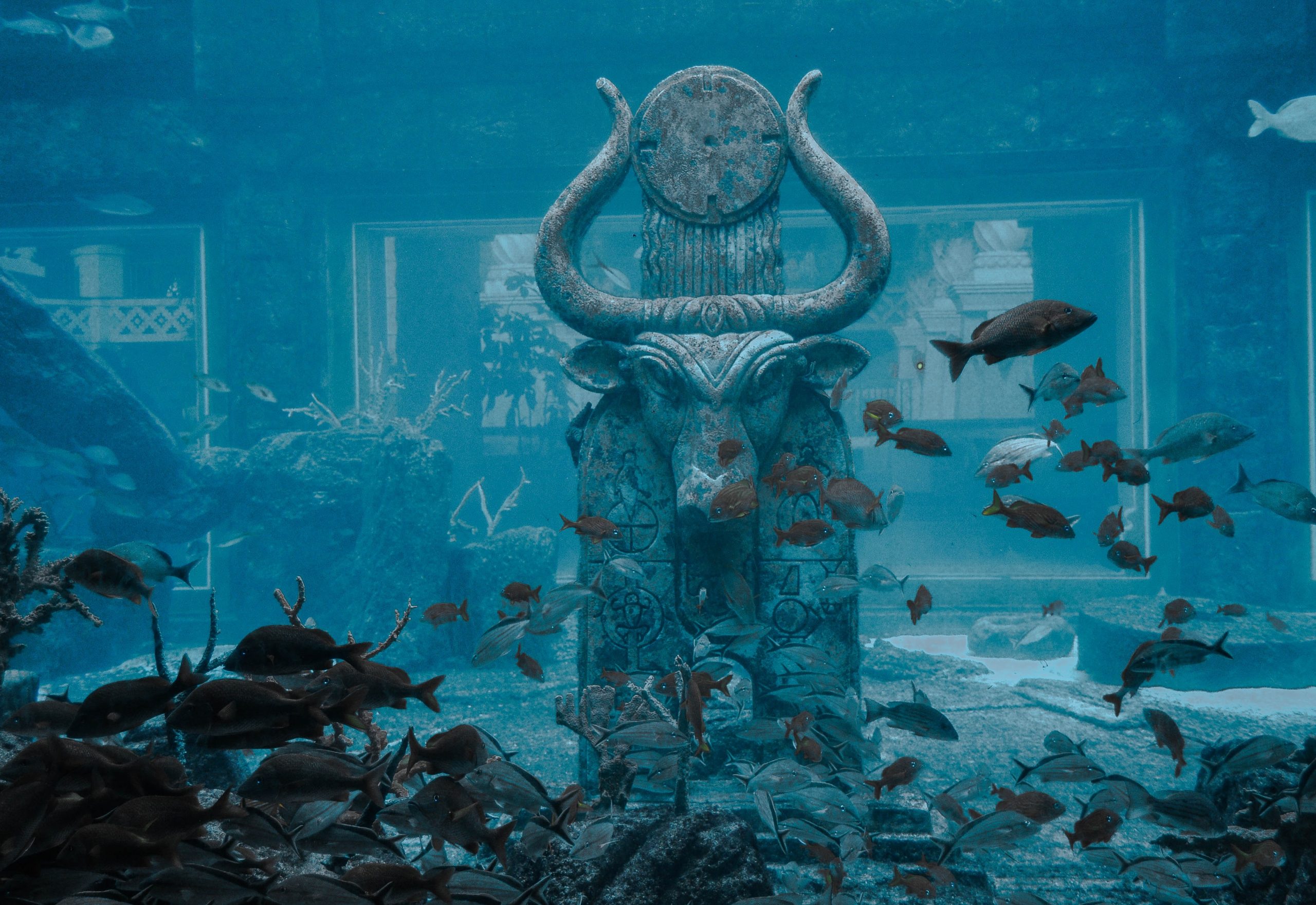 he ocean is undiscovered. No one knows what lies behind three-quarters of our planet. Although oceanography has made great strides in the last decades, it still lacks the resources, experts, and opportunities to thoroughly explore the ocean floor, giving rise to the hope that Atlantis will one day be found.
he ocean is undiscovered. No one knows what lies behind three-quarters of our planet. Although oceanography has made great strides in the last decades, it still lacks the resources, experts, and opportunities to thoroughly explore the ocean floor, giving rise to the hope that Atlantis will one day be found.
For the majority, Atlantis is just a morality tale about an advanced civilization that became so technologically powerful, corrupt, and arrogant that it sank into the sea due to the apocalyptic events described in the Biblical story about Noah’s Ark and was never found again. The greatest punishment of all – to have one’s very existence doubted, questioned, and not believed.
For some seekers, however, Atlantis is as real as the city of Troy, which was also thought to be fiction until it was found in 1870 about 220 miles southwest of Istanbul, giving hope to Atlantis seekers who were now certain that Atlantis existed.
No doubt, Atlantis is a pillar of every rise and fall story and the subject of many researchers, some scientific, others pseudo-scientific, pointing to the eternal philosophical question: Does everything that can be imagined exist? Do myths and legends have a factual basis in history? How credible is official history?
Plato’s 51 Clues
Atlantis was first mentioned, and only in Plato’s dialogues “Timaeus” and “Critias”, 2,400 years ago as a powerful and technologically advanced kingdom that sank into the sea within 24 hours around 9,600 BC due to terrible earthquakes and a subsequent tsunami. Plato wrote that he heard the story of Atlantis from his grandfather, who had heard it from the Athenian statesman Solon, who had heard it from an Egyptian priest who said that it had taken place 9,000 years before.
Plato gives 51 clues for the description of Atlantis. These include a location near the sea, a location outside the “Pillars of Heracles” which many believe stands for Gibraltar, the presence of elephants, mountains to the north, and a ring-shaped structure of the city located within about 5000 km from Athens. This radius includes most of Europe, Africa above the equator, and the Middle East.
Atlantis conquered Africa as far as Egypt and Europe as far as Tyrrhenia (Etruscan Italy) before being supplanted by mighty Athens. And then it sank in a day and a night, leaving no trace, giving rise to speculation as to whether it ever existed. It is well known that Aristotle believed that Plato, his teacher, had invented the legend of Atlantis to support a philosophical point.
However, Crantor, a student of Plato’s student Xenocrates, after visiting Egypt and allegedly seeing hieroglyphs about Atlantis, believed it was a historical fact. And the early Christian author Tertullian also thought that Atlantis once existed in the Atlantic Ocean and was as large as Libya or Asia.
The Mayan Connection
Francisco Lopez de Gomara was the first to state that Plato was referring to America, as were Francis Bacon and Alexander von Humbold. But it wasn’t until Thomas Moore published his most famous satire, Utopia, in 1516, in which the history of Atlantis is described similarly to Plato, that a connection was made with the Mayan and Aztec empires.
More and more researchers assumed that these Mesoamerican civilizations were descendants of the survivors of Atlantis, which was mostly based on racism, since the Europeans when they met the natives, didn’t believe that they were once capable of building such fascinating cities that are now ruins. The theory spread quickly and is still the most popular theory among Atlantis seekers.
The French scholar Brasseur de Bourbourg, who traveled to Mesoamerica in the mid-18th century and translated many Mayan texts, claimed that the Maya were descended from the Toltecs, who he believed were the surviving population of the superior civilization of Atlantis. However, it was the American Congressman Ignatius L. Donnelly from Minessota who popularised the Atlantis mystery with his 1882 pseudo-archaeological book “Atlantis: The Antediluvian World,” in which he claimed that all ancient civilizations had their origin in Atlantis.
The can of worms was opened, and in the 20th-century research on Atlantis increased greatly as more and more seekers believed that myths and legends had an actual historical origin.
Atlantis could emerge from the sea just about anywhere
Most historians and archaeologists don’t search in the Atlantic Ocean but in the Mediterranean and on islands such as Sardinia, Crete, Santorini, Sicily, Cyprus, and Malta. We know that an advanced Minoan civilization on Crete, which left traces of bull worship and iconography in the archaeological record, was completely destroyed by a catastrophic volcanic eruption on Thera (Santorini) in the 17th or 16th century BC, followed by a great tsunami.
Furthermore, Plato’s next dialogue after Atlantis is entitled Minos and deals with the Minoan culture, which many believe confirms that Atlantis was at least partly on Crete. However, when the French colonized North Africa, they discovered that the ancient port of Carthage was an exact miniature of the capital of Atlantis described by Plato.
And although Malta is now too small for Atlantis, there are huge ancient structures there that are more than 9,000 years old and are considered the oldest stone ruins in the world. Moreover, there were once elephants there and the island was destroyed by a huge catastrophic wave. We mustn’t forget that the earth has changed a lot since then and that we cannot measure it with today’s dimensions.
Recently, a German researcher and computer genius Michael Hubner entered Plato’s 51 clues into a computer program that overlays a map with a grid of 400 sub-areas and found that a place on the Moroccan coast fit the parameters: the Souss-Massa plain about 160 km south of Marrakech.
The truth is that the search for Atlantis is still ongoing and we can only hope that as oceanographic research progresses, more and more lost civilizations will be discovered to explain the missing details.
On the other hand, we may have to accept that Atlantis was just another of Plato’s allegories, and agree with Plato when he writes in Critias: “It is inevitable, I suppose, that everything we have all said is a kind of representation and attempted likeness” (Critias 107b).

Writer and director who thinks different and does everything differently. Art enthusiast. Wandering and wondering. Until the end of meaning.
irena_curik@hotmail.com





